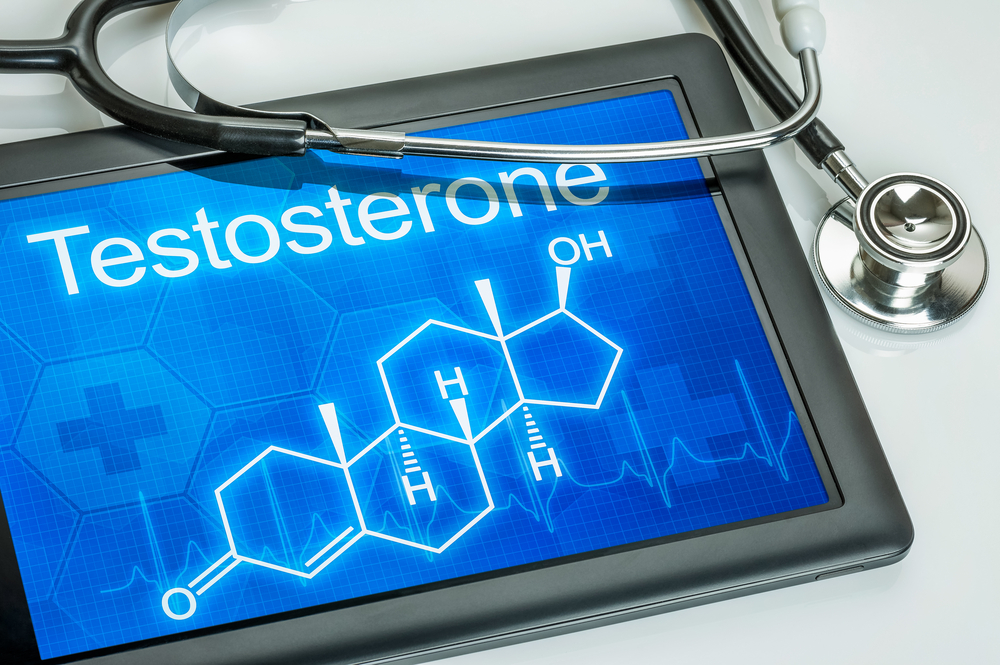
Boosting Testosterone: Unleashing the Potential of Peptides
How Do Peptides Increase Testosterone Levels?
Peptides have emerged as a potent tool in the realm of hormone therapy, particularly for their role in increasing testosterone levels. Peptides like sermorelin and ipamorelin are especially noteworthy for their ability to stimulate the release of growth hormone, which indirectly boosts testosterone production. This article explores the mechanisms by which peptides increase testosterone levels, compares peptide therapy to traditional testosterone replacement therapy (TRT), and highlights why Vitality Aesthetic & Regenerative Medicine in Palm Harbor, Florida, is your go-to resource for all questions about peptides, TRT, and men’s health.
The Role of Peptides in Hormone Regulation
Understanding Peptides
Peptides are short chains of amino acids that function as signaling molecules in the body. They play a crucial role in various physiological processes by binding to specific receptors on the surfaces of cells and triggering specific biological responses. In the context of hormone therapy, certain peptides can stimulate the release of hormones that are pivotal for overall health and well-being.
Mechanism of Action: How Peptides Boost Testosterone
Sermorelin and Ipamorelin
Sermorelin and ipamorelin are growth hormone-releasing peptides (GHRPs). These peptides stimulate the pituitary gland to release growth hormone (GH). The increase in GH levels subsequently raises the levels of insulin-like growth factor 1 (IGF-1), which has multiple anabolic effects, including the stimulation of testosterone production.
Luteinizing Hormone (LH) and Follicle-Stimulating Hormone (FSH)
The release of GH and IGF-1 indirectly boosts the production of luteinizing hormone (LH) and follicle-stimulating hormone (FSH) by the pituitary gland. LH plays a critical role in testosterone production by stimulating the Leydig cells in the testes, while FSH is involved in spermatogenesis. By increasing the levels of LH and FSH, peptides like sermorelin and ipamorelin help enhance the body’s natural production of testosterone.
Comparing Peptide Therapy to Testosterone Replacement Therapy (TRT)
Testosterone Replacement Therapy (TRT)
TRT involves the administration of exogenous testosterone to address low testosterone levels in men. This therapy can be delivered through various forms, including injections, gels, patches, and pellets. TRT effectively raises serum testosterone levels, alleviating symptoms such as fatigue, depression, and reduced libido. However, it comes with certain drawbacks, including the potential suppression of natural testosterone production and testicular atrophy.
Advantages of Peptide Therapy
Peptide therapy offers a distinct approach by stimulating the body’s natural hormone production mechanisms. Unlike TRT, which provides a direct supply of testosterone, peptides enhance the release of hormones like GH, LH, and FSH, promoting endogenous testosterone production. This approach has several advantages:
- Natural Hormone Production: Peptide therapy encourages the body to produce its own testosterone, reducing the risk of testicular atrophy and infertility.
- Fewer Side Effects: Since peptides work by enhancing natural hormone levels, they are less likely to cause the hormonal imbalances often associated with exogenous testosterone administration.
- Comprehensive Benefits: Peptides like sermorelin and ipamorelin not only boost testosterone but also improve overall health by promoting muscle growth, fat loss, and enhanced cognitive function.
Clinical Evidence Supporting Peptide Therapy
Research Studies
Numerous studies have demonstrated the efficacy of peptides in boosting testosterone levels. For instance, a study on sermorelin showed that it significantly increased GH, IGF-1, and, subsequently, testosterone levels in men with growth hormone deficiency. Similarly, research on ipamorelin has shown its effectiveness in stimulating GH release, leading to enhanced testosterone production and improved body composition (Jay Campbell) (Peptides.org).
Patient Outcomes
Clinical outcomes from peptide therapy have been promising, with many patients reporting improvements in energy levels, mood, libido, and overall quality of life. The ability of peptides to enhance natural hormone production while minimizing side effects makes them an attractive alternative to traditional hormone therapies.
Comparing the Safety Profiles
Peptide Therapy
Peptide therapy is generally well-tolerated with a low risk of adverse effects. Common side effects, such as mild injection site reactions, are usually temporary and resolve on their own. The natural mechanism of action of peptides reduces the likelihood of hormonal imbalances and other complications associated with exogenous hormone administration.
Testosterone Replacement Therapy (TRT)
While TRT is effective, it carries certain risks, including:
- Testicular Atrophy: Exogenous testosterone can suppress natural testosterone production, leading to testicular shrinkage.
- Infertility: TRT can reduce sperm production, impacting fertility.
- Cardiovascular Risks: Some studies suggest a potential link between TRT and increased cardiovascular risks, though the evidence is still inconclusive.
- Hormonal Imbalances: TRT can lead to fluctuations in hormone levels, potentially causing mood swings, acne, and other issues.
The Future of Hormone Therapy
Advancements in Peptide Research
Ongoing research continues to explore the potential of peptides in hormone therapy. New peptides are being developed and tested for their efficacy in stimulating hormone production and improving various aspects of health. The ability of peptides to target specific physiological pathways offers exciting possibilities for personalized medicine and tailored treatment plans.
Integrated Treatment Approaches
Combining peptide therapy with other treatment modalities, such as lifestyle interventions and nutritional support, can enhance overall outcomes. An integrated approach that addresses multiple aspects of health can provide comprehensive benefits and improve the quality of life for patients with hormonal imbalances.
Conclusion: Why Choose Peptide Therapy?
Peptide therapy represents a promising and innovative approach to hormone optimization, offering several advantages over traditional testosterone replacement therapy. By stimulating the body’s natural hormone production pathways, peptides like sermorelin and ipamorelin provide a more balanced and holistic solution to low testosterone levels.
For those interested in exploring the benefits of peptide therapy, testosterone replacement therapy, or addressing specific men’s health concerns, consulting with a knowledgeable healthcare provider is essential. Vitality Aesthetic & Regenerative Medicine in Palm Harbor, Florida, specializes in these treatments and can provide personalized care to meet your health needs. Contact Vitality Aesthetic & Regenerative Medicine today to schedule a consultation and take the first step towards revitalizing your health and well-being.

